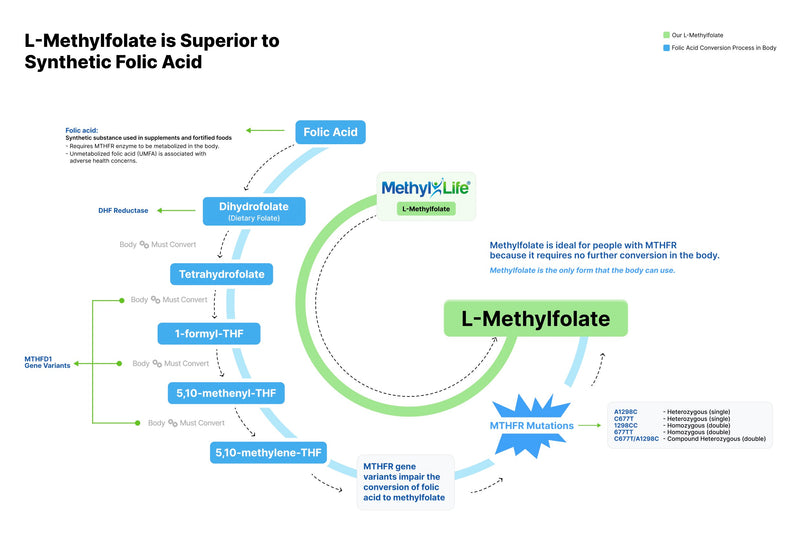Treating MTHFR
If you’ve been diagnosed with an MTHFR mutation, don’t panic! You may not necessarily experience all of the symptoms associated with the mutation. In fact, symptoms vary depending on the type of mutation you have.
Making changes to your diet and lifestyle can help you optimize your body’s methylation processes and reduce the risk of symptoms. Natural treatments and supplements (such as methylfolate) can also help you to feel great and support your long-term health.








